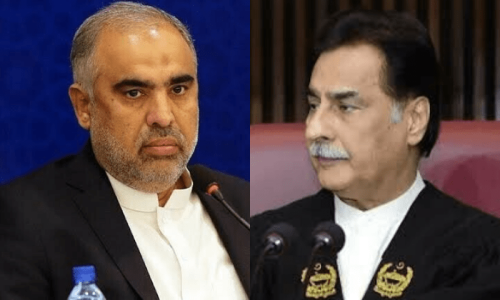ISLAMABAD, Jan 16: Troubled fast bowler Mohammad Asif could have been saved from the doping offence had he been made aware of banned drugs.
This was stated on Friday by Chairman Anti-Doping Organisation Pakistan (ADOP) Dr Waqar Ahmed.
“A little education about banned drugs in sports could have helped Asif,” he said. “A TUE-Certificate from a doctor can be helpful for players in need of such medications in certain cases — in case of emergency medical need, which may carry some banned steroids.”
Therapeutic Use Exemptions (TUEs) are part of the new World Anti-Doping Code. The code is meant to harmonise anti-doping rules across sports and countries.
Athletes, like other people, may have illnesses or conditions that require them to take particular medication.
The substances they may be required to take may happen to fall under the prohibited list.
Dr Waqar pointed out: “By obtaining a TUE-Certificate athletes are able to take the needed medicine with this proper authorisation from their international federations or national anti-doping agency.”
Often, he said, athletes were suffering from hypertension, asthma and many other diseases and they used steroids and basically a TUE-Certificate can save them from any action by the international federations.
“A proper education to sportsmen will create awareness among players about staying away from drugs which will benefit them to work on the WADA’s slogan ‘play true’.”
The ADOP, he informed, was at present working on booklets, in Urdu and English language, that would be helpful to educate and inform sportsmen in the country about the banned drugs.
“We have written to the PCB regarding the awareness and education campaign about WADA anti-doping rules and the banned drugs but there was no response from the board.”
Recent drug controversy has jeopardised Asif’s career after he was caught at the Dubai airport with 0.24 grams of opium in his wallet and was detained for 19 days.












































Dear visitor, the comments section is undergoing an overhaul and will return soon.